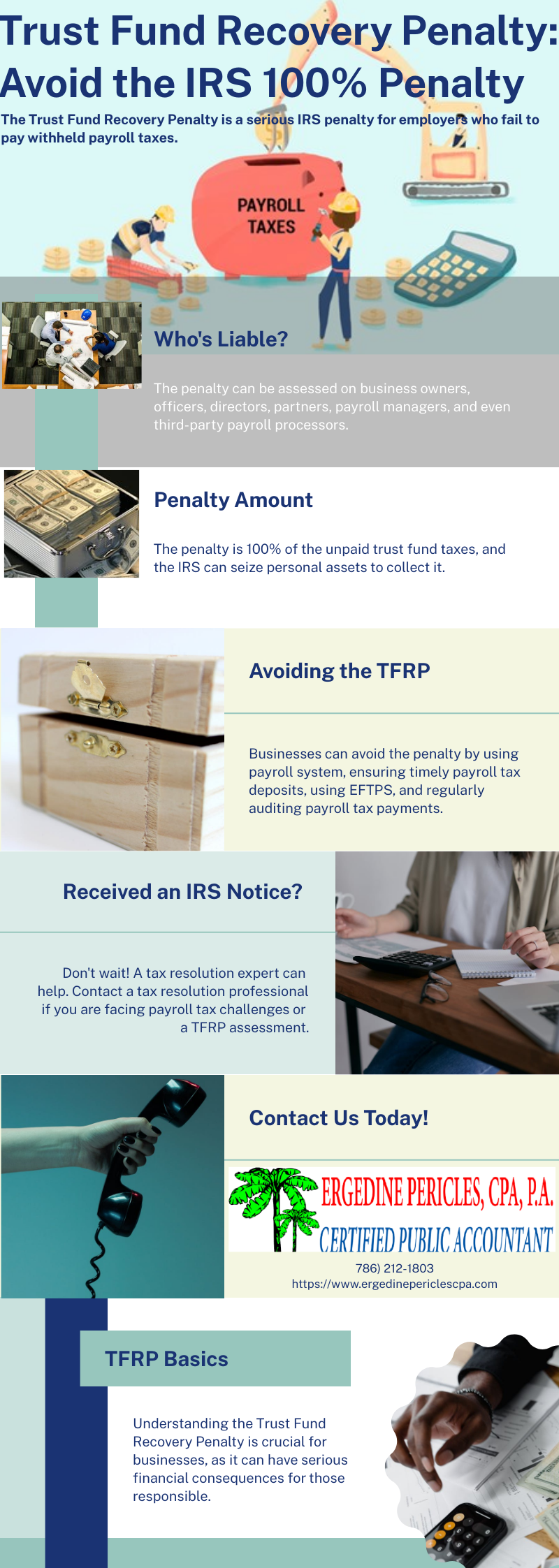Trust Fund Recovery Penalty (TFRP): Avoid the IRS’s 100% Penalty
Ergedine Pericles, February 24, 2025
What is the Trust Fund Recovery Penalty (TFRP)?
Employers are required to withhold payroll taxes from employees’ wages and hold them “in trust” for the IRS. If these withheld funds are not remitted to the IRS, the IRS considers it a serious offense.
The Trust Fund Recovery Penalty (TFRP) is a severe IRS penalty assessed against business owners, corporate officers, payroll managers, and others who fail to remit employees’ withheld payroll taxes. The penalty is 100% of unpaid trust fund taxes, and the IRS can seize personal assets to recover the funds.
Payroll Taxes Affected by TFRP
- Federal income tax withholding
- Employee’s share of Social Security & Medicare (FICA) taxes

Who Can Be Held Liable?
The IRS can personally assess the TFRP against individuals who were responsible for collecting and paying these taxes, including:
- Business Owners & Partners
- Corporate Officers & Directors
- Payroll Managers & Accountants
- Third-Party Payroll Processors (if involved in non-payment)
If multiple individuals are found responsible, the IRS can collect the full amount from any one of them—even if others were also responsible.
How Much Is the Penalty?
The Trust Fund Recovery Penalty equals 100% of the unpaid trust fund taxes. This means the IRS can demand the full amount from personal assets, including bank accounts, wages, and property.
How to Avoid the TFRP
Received an IRS Payroll Notice?
Don’t wait! A tax resolution expert can help dispute liability, reduce penalties, or negotiate payment options. Contact a tax professional if you are facing payroll tax challenges or a TFRP assessment.
Overwhelmed by Payroll Tax Problems? We Can Help.
At Ergedine Pericles, CPA, we specialize in helping businesses and individuals navigate unpaid payroll tax problems and resolve IRS penalties.





